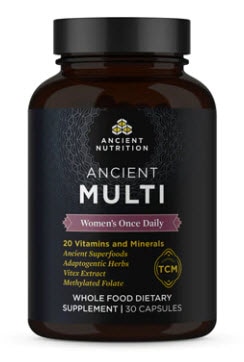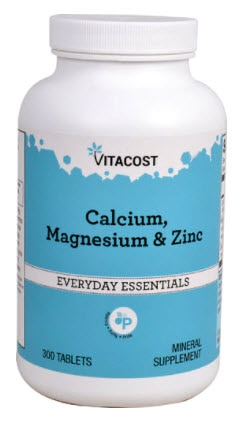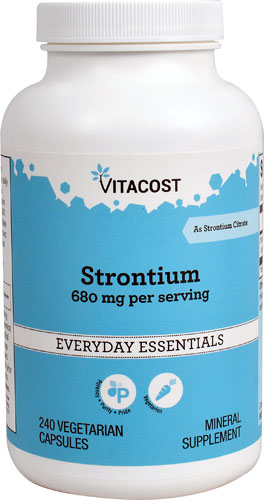“Essential minerals” are nutrients that we must get from our diets because our bodies cannot make them on their own. There are 13 different types of
essential minerals that we all must acquire regularly in order to avoid deficiencies and side effects. These include minerals like potassium, calcium, zinc, iron, magnesium and others.
These minerals are divided up into two basic categories: macrominerals, which we need in larger amounts, and trace minerals, which we need in only small amounts.
What do minerals do for the body? Let’s take a look at the major minerals the body requires and their functions – plus, signs you may not be getting enough and how to acquire more.

What are minerals?
Minerals are defined as solid chemical compounds. They are utilized each and every day by our cells and organs for processes related to growth, development, movement, energy production and much more.
What makes minerals different then vitamins?
Vitamins are organic substances that are made by plants or animals, while minerals are inorganic elements that come from soil and water. Minerals are absorbed by plants or eaten by animals, and then we eat these plants/animals in order to get the minerals we require.
Minerals in our diets are needed to maintain overall health because they
have essential jobs including:
- Regulating fluid balance
- Facilitating nerve transmissions
- Allowing for muscle contractions, muscle relaxation and other functions
- Supporting heart health and normal blood pressure
- Carrying oxygen throughout the body
- Improving bone and teeth strength
- Facilitating blood clotting
- Maintaining brain health
- Producing stomach acid
- Supporting growth and development
- Creating enzymes that help with digestive and metabolic processes
- Healing wounds and damaged tissues
- Supporting thyroid function
- Maintaining a normal acid-base balance (pH level)
Among the most important minerals that the body needs on a consistent basis are
electrolytes, which are macrominerals that carry either a positive or negative charge when dissolved in water. These minerals include: magnesium, potassium, sodium, calcium, chloride and phosphorus.
Electrolyte minerals have many different roles, including to facilitate normal metabolic processes, heart rhythms and nerve functions that allow you to be physically active. They also help to balance fluid levels in the body and to keep us hydrated.
You’ll find electrolytes in your blood, sweat and urine, and they’re constantly being lost and replenished depending on factors like your diet, exercise level and whether or not you’re sick. Although all essential minerals are vital to consume,
you need electrolytes in greater amounts than trace minerals like copper, selenium and zinc.
The most important minerals & how much you need
If you eat a poor diet, you’re experiencing dehydration, fluid loss caused by excessive sweating or diarrhea, or if you have an illness such as kidney or heart disease, then you may be lacking all the minerals you need.
These factors can cause you to both acquire lower amounts of minerals than are healthy, and to lose them at a higher rate.
The most effective way to meet your mineral needs is to eat a varied, healthy diet that includes lots of vegetables, fruits, quality proteins like grass-fed meat and poultry,
beans, nuts and seeds.
Which minerals are the most important ones to focus on? While there are many “essential” minerals that you need, those below tend to be involved in the most bodily processes and needed in the highest amounts:
1. Magnesium
Recommended daily allowance (RDA): 350 to 420 milligrams/day
Sources: avocado, banana, potatoes. nuts, seeds,
dark chocolate, leafy greens, whole grains, beans
2. Sodium
RDA: no more than 2,300 milligrams/day (should be consumed in moderation to balance other minerals)
Sources: sea salt, pickled/fermented foods like
sauerkraut and pickles, cottage cheese and other cheeses, olives, canned and preserved foods
3. Potassium
RDA: 4,700 milligrams/day
Sources: bananas, sweet potatoes, spinach,
lentils, orange juice, most beans, beets, dried fruit like dates
4. Calcium
RDA: 1,300 milligrams/day
Sources: yogurt, kefir, raw milk, cheese, canned sardines, leafy greens, broccoli,
cashews, almonds
5. Phosphorus
RDA: 1,250 milligrams/day
Sources: meat, fish, poultry, dairy, nuts,
seeds, legumes
6. Iron
RDA: 8 to 18 mg/day (more for pregnant women and premenopausal women)
Sources: Organ meats, red meats, fish, poultry, clams, egg yolks, legumes, dried fruits like
raisins, dark, leafy greens
7. Zinc
RDA: 8 to 11 mg/day
Sources: Meats like beef, organ meats like liver, fish, poultry, some vegetables
8. Iodine
RDA: 150 to 200 micrograms/day
Sources: Seafood, some
algae and sea vegetables, iodized salt, bread, some dairy products
9. Selenium
RDA: 55 to 70 micrograms/day
Sources:
Brazil nuts, seafood, organ meats
Featured products








